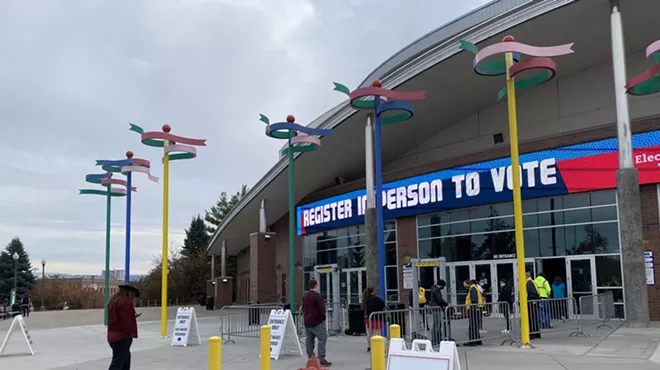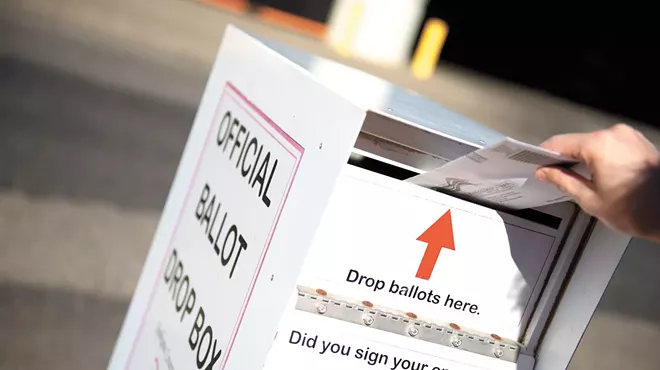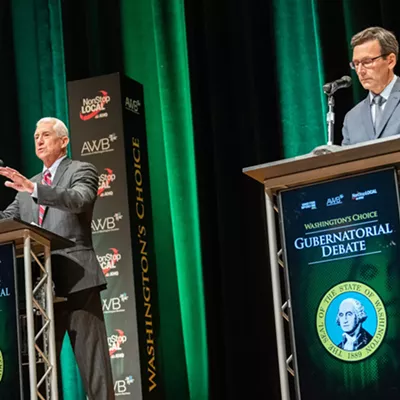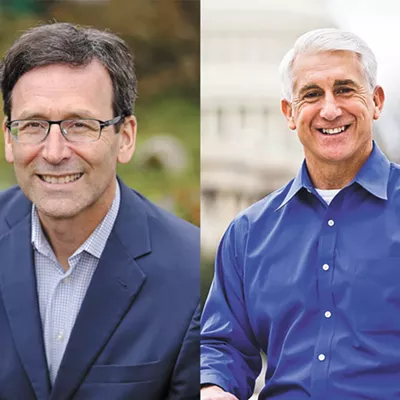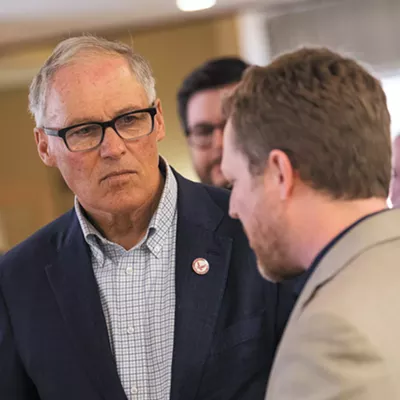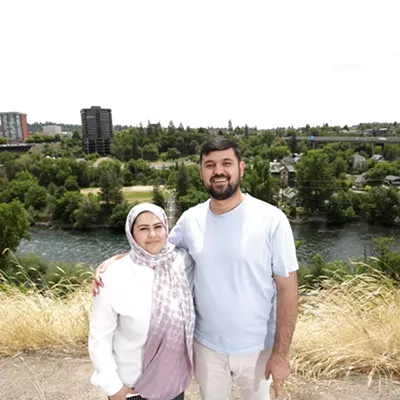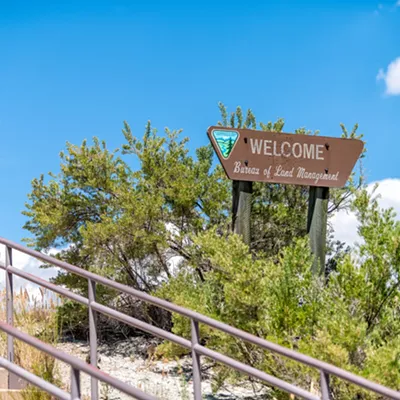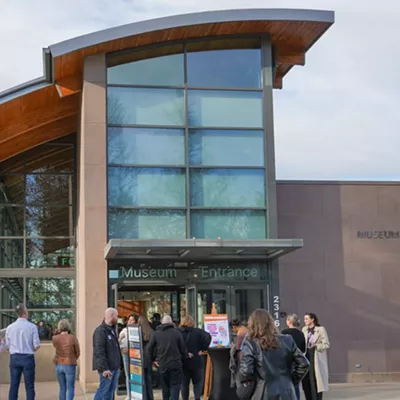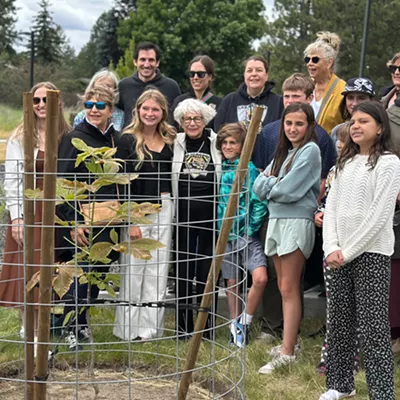This year, Washingtonians have been hit hard by three issues that, in any other year, could each swing a gubernatorial election on its own. There's the pandemic that has killed more than 2,300 people and devastated the state's economy. There are the protests against police brutality of people of color (and, in Seattle, an armed occupation of what activists proclaimed an autonomous zone). And then there are the wildfires that continue to ravage across the state.
This may shock you, but Gov. Jay Inslee, a Democrat, and challenger Loren Culp, a Republican and the police chief in Republic, disagree on all of these issues. Here's what they have to say on the pandemic, protests and wildfires.
CORONAVIRUS
In terms of preventing deaths due to COVID-19, Washington, and Inslee, have been widely credited for the response to the pandemic. Washington was the first state to identify the novel coronavirus and was relatively swift in shutdown orders of schools, restaurants and businesses. Combined with a mask mandate later on, those measures have been some of the most successful in the country in terms of avoiding deaths compared to other states, according to the Centers for Disease Control and Prevention.
"Because Washingtonians are not listening to Donald Trump, and frankly, Chief Culp, they are wearing masks, they are social distancing, and as a result of that we have lowered our infection rate dramatically," Inslee says in a recent debate against Culp. "We have saved lives."
But seven months later, many of these restrictions on everyday life remain in place, and there's no end in sight. Culp argues that many of these restrictions, most notably a mask mandate, shouldn't be dictated by the governor. Wearing a mask, he says, should be a personal choice.
"The problem is when we have one person sitting in the governor's office telling everyone what they are going to wear," Culp says.
PROTESTS
In their debate, Inslee finally admitted that he may have made a "misstatement" when he said he didn't know about the Capitol Hill Autonomous Zone in Seattle two days after it was occupied by activists. But he says he provided support "as appropriate," referring to the National Guard and State Patrol. Culp, meanwhile, says that Inslee is "soft on crime" and that Inslee either had no clue what was going on or was lying.
When it comes to racial inequality and police brutality, Culp prefers to scrutinize isolated incidents rather than the bigger picture. During the debate with Inslee, Culp said he didn't agree with ending qualified immunity that protects officers from civil lawsuits. (Note: He is facing a civil lawsuit in Republic over a sex abuse investigation.) Culp was also asked about officers who are rehired after being fired for misuse of force, but he demanded a specific example, and when given one, declined to weigh in on another police department outside his own besides saying he's "all for" officers being held accountable generally.
Culp has also said he doesn't believe there is systemic racism. And when presented the opportunity to explain how, if there is no systemic racism, there still exist racial disparities in education, income and health outcomes, Culp dodged the question by simply pointing out that there are laws that say everyone will be treated equally.
Inslee, by contrast, says he's open to discussions on ending qualified immunity, but he hopes action to address racial inequity is not limited to criminal justice. That would mean better preparing young students of color for school and providing their families health care, he says.
WILDFIRES
Inslee has called the fires that have decimated small towns in Washington "climate fires," while Culp has questioned climate change. But on the wildfires specifically, Culp blames poor forest management in the state and, by extension, Inslee. But Inslee, who has referred to Culp as "mini Trump," blames Trump for slashing the budget for thinning forests. He adds it takes time for forest management, but that the state's investment in forest treatment has gone up significantly since he's been in office. ♦




